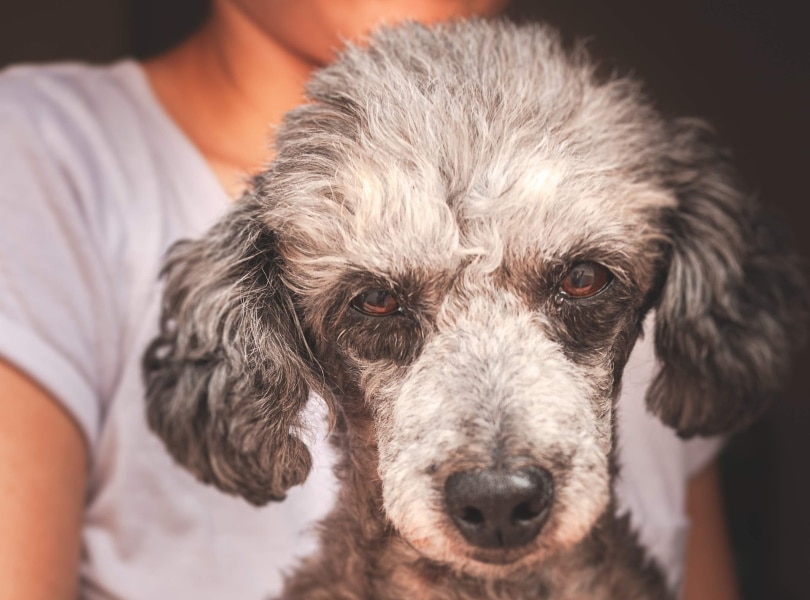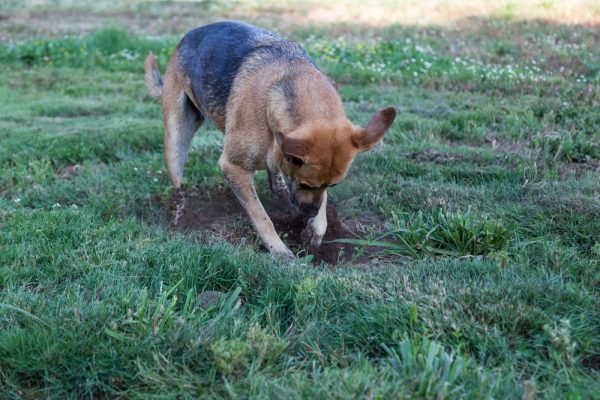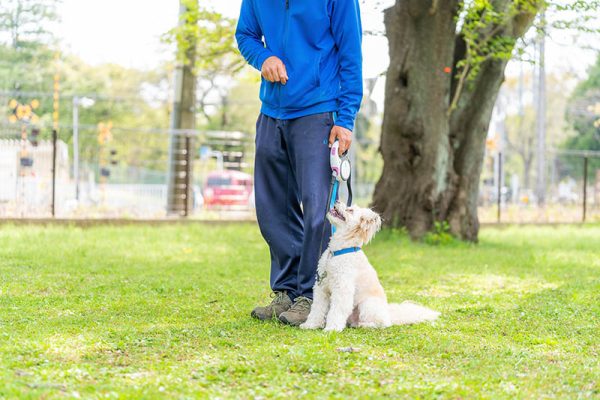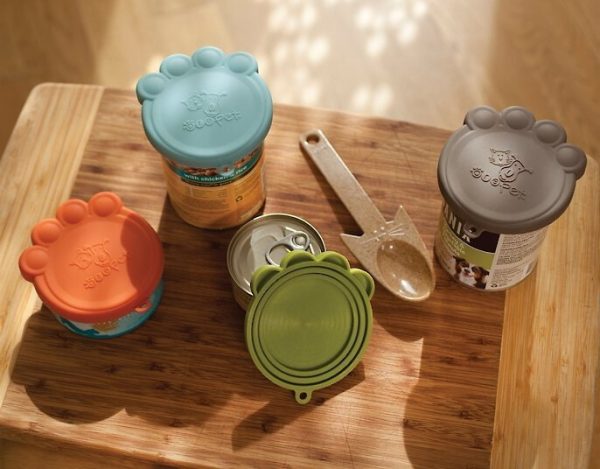Merle Poodles are just like regular Poodles, but they have coats with distinctive multicolor markings that often resemble dashes and spots. These Poodles are a bit controversial. There’s a debate over the provenance of the merle gene in this breed, with some arguing that it was a spontaneous mutation and others insisting that it must have been introduced through deliberate cross-breeding, thus making it impossible to have a purebred Merle Poodle.
Breed Overview
Height:
15–24 inches
Weight:
40–70 pounds
Lifespan:
12–15 years
Colors:
Apricot, brown, white, gray, black, cream, fawn
Suitable for:
New dog owners, families with older kids, people with allergies
Temperament:
Intelligent, active, friendly, mischievous
The American Kennel Club (AKC) refuses to recognize Merle Poodles due to the controversy. They’re considered problematic in breeding due to the risk of merle puppies being born blind or deaf.1 They also have higher chances of developing severe eye and ear problems later in life. This is why seeking out a high-quality breeder is always recommended. That said, for the casual canine lover, these dogs act and look like any other Poodles and just have vibrant, multi-colored coats.

Merle Poodle Characteristics
The Earliest Records of Merle Poodles in the World
Although they’re commonly associated with France, Poodles were initially bred in Germany to work as water retrievers during waterfowl hunts. The breed has been around for over 400 years, as indicated by the representations of Poodles in 17th-century artwork. Before the turn of the century, they were also popular performers in French circuses. Miniature Poodles developed because the traveling circuses began breeding smaller dogs, as they were easier to transport and cost less money to maintain.
No one’s definitively established where the merle trait comes from in Poodles. Some say that the gene had to have been introduced from another breed, and others swear that their Merle Poodles are 100% purebred and have the DNA tests to prove it.
How Merle Poodles Gained Popularity
Poodles weren’t popular in the United States until one was named the AKC’s Best in Show in 1935. After that, Poodles hit the big time, becoming the most popular breed in the United States in 1960 and staying there for 22 years, until 1982.
They’re still the fifth most popular dogs in the country. While some people adore the merle look on Poodles, others find breeding dogs with the merely trait to be problematic due to the health risks involved. Merle dogs are often born with severe physical issues, and many are blind or deaf. Most experts see breeding these dogs as a high-risk affair. As a result, Merle Poodles have never been extremely popular as a color option within the overall breed.
Formal Recognition of Merle Poodles
Standard, Miniature, and Toy Poodles were recognized by the AKC in 1886, and the Kennel Club of the United Kingdom recognized them in 1874. The AKC recognizes Poodles of any solid color, including white, black, blue, cream, gray, and others. It acknowledges the existence of multi-colored dogs with coats featuring two distinct colors, but it classifies them as not adhering to the breed standard.
When it comes to Merle Poodles, the AKC takes a different tact: It doesn’t acknowledge merle as an accepted breed standard or alternate color. The Kennel Club of the United Kingdom explicitly excludes merle dogs of all breeds from registration.
Top 3 Unique Facts About Poodles
1. Poodles Once Competed in the Iditarod
Poodles were bred to be water retrievers and as such, are serious athletes. They’ve had great success competing in dog show agility competitions. Also, in 1988, John Sutter competed in the Iditarod with a team of Poodles. The rules have been changed, though, and the competition is now only open to cold-tolerant breeds.
2. Poodles Are Incredibly Smart
A study determined that the Poodle is the second smartest dog breed. The Border Collie has the top spot. Poodles are so sharp that most can learn a new command with five or fewer repetitions. This trait is also responsible for the famous Poodle tendency to ignore owners’ commands.
3. All Sizes Follow the Same Breed Standard
Poodles come in three sizes: standard, miniature, and toy. Standard dogs are at least 15 inches tall at the shoulder, and most weigh anywhere from 40–70 pounds. Toys must be under 15 inches tall. All three sizes are judged in competition using the same breed standard.
Do Merle Poodles Make Good Pets?
Merle Poodles make fantastic pets for the right owners. Poodles are whip-smart and have a ton of energy. They’re also incredibly sensitive. These active dogs require tons of physical activity and human attention, or they risk becoming neurotic and exhibiting unwanted behaviors, such as excessive barking and hyperactivity.
Standard and Miniature Poodles need at least 1 hour of exercise daily to get rid of all that anxious energy. Toys can usually get by with a 45-minute outing. Training is critical for Poodles because they’re incredibly intelligent and inclined to ignore their owners. Friction between household members often causes anxiety in these dogs. Poodles that are ignored or otherwise don’t receive sufficient attention often become anxious and depressed.

Conclusion
Merle Poodles are just like other Poodles: active, energetic, and intelligent. They have stunning multi-colored coats featuring dots, dashes, and flecks that create a magical, multi-hued effect. Quite a bit of controversy surrounds these dogs, though.
No one can agree on where the merle trait comes from in Poodle, leading many to suggest that the dogs aren’t purebreds. They’re also considered problematic in breeding due to the risk of health issues, including blindness, deafness, and eye and ear problems. If you’re interested in one of these dogs, seek out a high-quality breeder who knows about the risks of breeding Merle Poodles and ensures the health of their puppies.
Featured Image Credit: Dayvison de Oliveira Silva, Pexels


















